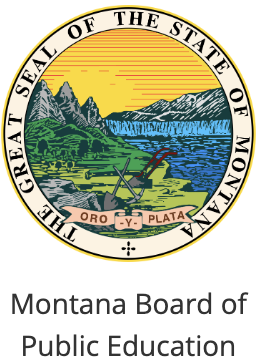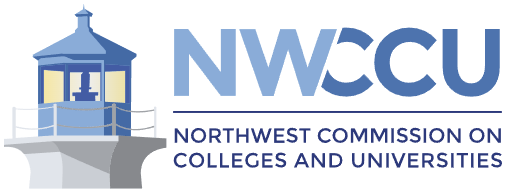Monday Minutes
Graduate Edition

Here are your Monday Minutes for January 4-8, 2021.
From the Department Head
Dear Students, Faculty, and Staff
I hope you had a good winter break and enjoyed socially-distant time with family and friends. While we have good news about COVID19 vaccine development and deployment, there are still many unknowns, such as when MSU employees and students will receive vaccinations and in what order. I am keeping a log of questions and you are welcome to send your questions to me. At this time, what you know is what I know, and I am committing to being transparent with communication- even if there is nothing new to report.
Additionally, the Montana legislative session begins. I encourage you to visit the website and see ways in which you can participate. While Montanans are welcome to testify in person, there is now a mechanism to upload your testimony and accompanying documents. Your legislators also enjoy hearing from constituents by phone, email, or even fax! Your legislators don’t know your opinions unless you tell them, so I encourage you to engage in this process as an informed citizen of our great state.
Have a great pre-spring 2021 semester week!
Take good care,
![]()
Dr. Ann Ewbank
Micki's Desk
If you have not yet registered for Spring Semester 2021, please register now. You may contact Micki at edgrad@montana.edu to request your registration pin for spring semester or to request assistance with registration. I would like to highlight a few course opportunities below:
- EDU 608. Advanced Quantitative Research. 3 Credits. PREREQUISITES: EDU 607. Doctoral Students will operationalize a research plan proposed in EDU 607. Specifically, they will refine their research proposals to produce a dissertation proposal that is defensible by piloting research procedures, data collection methods, data analysis techniques, and presentation of results in written and oral formats.
- EDLD 630. Supervision & Instructional Leadership. 3 Credits. The course focuses on increasing the knowledge and skills of supervising and leading instruction on a district or school systems basis. Emphasis is given to dimensions of leadership at the district level including supervision of the leadership team, aligning the vision, mission, and strategic plan with student needs, professional growth, and maximizing resources to support teaching and learning.
- EDLD 501. Foundations of Adult Education. 3 Credits. This course provides a study of the field of profession of adult education as a part of life-long learning. Professionalism in adult education is approached through the study of historical and philosophical foundations, providers and programs, and teaching strategies appropriate for adult education settings.
How to apply for Graduation >> New Process << ATTENTION all Education Graduate Students – If you will be applying to graduate Spring Semester on May 1, 2021, please contact your Advisor/Chair between Wednesday, January 6th and January 16th. Your Advisor/Chair will need to review your DegreeWorks and approve your request to graduate. As soon as this has be completed, you will receive notice through MyInfo that you may submit your Online Graduation Application. I have attached two documents for your instruction. If you have any questions, please reach out to me at edgrad@montana.edu. This online process is new for you, your Advisor/Chair, and me, so we will be learning together. REMEMBER, the FIRST STEP to apply to Graduate on May 1st is to contact your Advisor/Chair. February 5th is the deadline for submitting your online application
News and Announcements
- The department Spring Kickoff meeting will be held on Thursday, January 7, from 10am-11:30am in Ann’s WebEx Room. Please watch for a calendar invite.
- Department Meetings will be held on Tuesdays from 12:15-1:30 on 1/19, 2/2, 2/16, 3/2, 3/23, 4/6, and 4/20 in Ann’s WebEx Room. Please watch for a calendar invite. Program meetings will be scheduled by program leaders as needed.
- January marks the beginning of Annual Review season. You will be reviewed for calendar year 2020. Your review will be completed within Activity Insight. Please have your AI profile up to date by January 22, 2021. Please watch for a sign-up for a 45-minute meeting with me via WebEx between 1/22 and 3/1 where we will discuss your 2020 progress and 2021 goals. Tenurable/tenured faculty review will be completed entirely in Activity Insight using the workflow function. Non-tenurable faculty who worked 7.5 workload units (0.5 FTE) or more in any 2020 semester will complete all fields in Activity Insight and will be reviewed using the form on the Provost’s website (not through AI workflow).
- EHHD is hiring a licensure/permit technician in the Office of Field Placement and Licensure, as well as an Assistant to the Department Heads/Business Operations Manager who will work directly with Becky Stanton. Please encourage interested candidates to apply.
Extra! Extra! Read all about it!
- Please watch for information on 2021 Provost’s Awards recipients. While there will be no spring convocation this year, each awardee will be featured in other ways. Several department colleagues were awarded- thank you for your commitment to excellence on behalf of the department!
- Our department’s success is determined by our collective accomplishments. Share your own accomplishments with pride! Or if you hear of a colleague or student’s accomplishment, please share. Please send accomplishments and kudos to ann.ewbank@montana.edu.
Professional Development & Engagement Opportunities
- Citizen Science for Graduate Students: Thursday, Jan 21 from 3pm-4pm, Online: The MSU Science Math Resource Center and SciStarter.org, an NSF-supported online hub of more than 3,000 citizen science projects, present this workshop designed specifically for MSU graduate students. A citizen science project is a collaboration between scientists and curious, motivated citizens who do everything from collect and share photos of clouds, birds or water; analyze tweets to predict COVID outbreaks; and solve puzzles to design specialized RNA-based medicines and sensors. This workshop offers an overview of how citizen science can support your academic and professional career. Register for the Citizen Science event today!
Equity, Diversity, and Inclusion Resources
- January 4 is World Braille Day. According to the United Nations, “Braille is a tactile representation of alphabetic
and numerical symbols using six dots to represent each letter and number, and even
musical, mathematical and scientific symbols. Braille (named after its inventor in
19th century France, Louis Braille) is used by blind and partially sighted people
to read the same books and periodicals as those printed in a visual font. Braille
is essential in the context of education, freedom of expression and opinion, as well
as social inclusion, as reflected in article 2 of the Convention on the Rights of Persons with Disabilities.”
Writing Peace is a manual that invites young audiences to become aware of the interdependence of cultures through familiarization with contemporary writing systems, their history, and their mutual borrowings. It provides a concrete introduction to many writing systems, including Braille.




